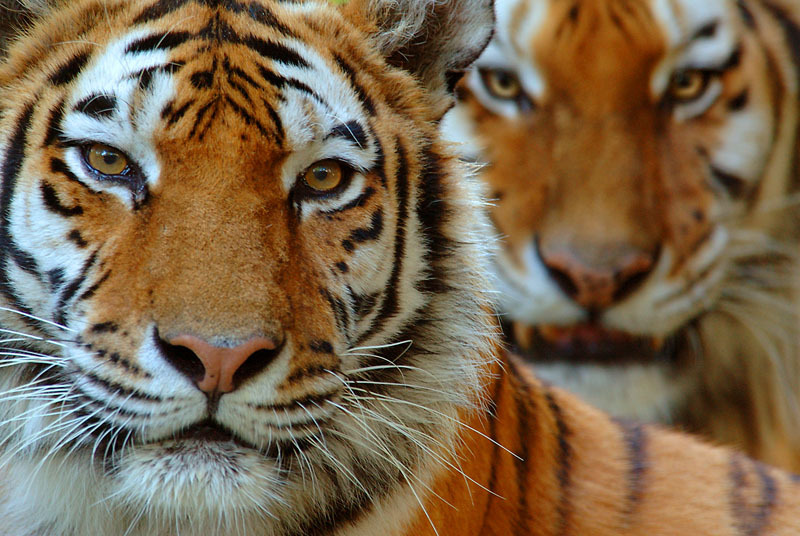With commercial tiger breeding in Asia threatening the future of the world’s remaining wild tigers, governments must announce concrete steps to close all the continent’s tiger farms within the next three years at the international conference on illegal wildlife trade starting tomorrow in Viet Nam.
A full TRAFFIC report released today on tiger trafficking found that an estimated 30 per cent of tigers seized between 2012 and 2015 were reported to come from captive breeding facilities, highlighting their growing role in the illegal trade. While complicating enforcement activities, tiger farms also legitimise the sale of tiger parts and products, which drives up demand.
“There is no longer any doubt that tiger farms are stimulating and expanding the illegal tiger trade or that they should all be closed down,” said Michael Baltzer, Leader of WWF’s Tigers Alive Initiative. “The Hanoi Conference is the perfect platform for governments to commit to shutting Asia’s tiger farms, which would contribute enormously to the survival and recovery of tigers in the wild.”
Tigers will be high on the agenda at the conference in Viet Nam. Despite enhanced regional efforts to stop the poaching and trafficking, the Reduced to Skin and Bones Re-examined report indicated that an average of 110 tigers were killed and traded each year since 2000. And the true number is surely higher since these figures come from reported seizures, while much of the trade goes undetected.
Viet Nam has also become an increasingly significant hub for tiger trafficking and home to a growing number of tiger farms – close to 40 per cent of the country’s reported seizures came from captive facilities. Its role in the illegal tiger trade was highlighted by the Wildlife Justice Commission at its public hearing this week in The Hague. Overall, there are estimated to be more than 7,000 tigers in farms in Asia, mostly in China, Laos, Thailand and Viet Nam.
“The rising number of tigers suspected to be from captive sources is a sure indication that these farms are leaky. This is most prominent in Laos, Thailand and Viet Nam,” said Kanitha Krishnasamy, author of the TRAFFIC report.
In October, Laos announced that it would close its tiger farms, while Thailand has initiated investigations into all of its captive breeding facilities after shocking discoveries at the Tiger Temple earlier this year, including finding the corpses of 40 tiger cubs preserved in jars.
“Thailand and Laos have already signalled an end to tiger farming: Viet Nam should join them and help lead efforts to ban commercial tiger breeding across Asia,” said Thinh Van Ngoc, Country Director of WWF Viet Nam. “There are no more excuses for allowing tiger farms to operate. The evidence is clear, while technical and financial assistance is available – all that’s needed is the political will.”
On November 23rd, the world will mark the 6th anniversary of the groundbreaking “Tiger Summit” in St Petersburg and the halfway point of the global Tx2 campaign to double the number of tigers in the wild by 2022 – the most ambitious and visionary recovery programme created for a single species.
For the first time in a century, global wild tiger numbers have increased slightly. But with only an estimated 3,890 in the wild, the species is still far from safe, particularly as poaching shows no signs of abating. Indeed, India has reported 76 tigers poached this year – its highest figure for 6 years.
“Decades of campaigning and on-the ground efforts to halt tiger poaching have achieved some significant successes, but the threat remains as grave as ever,” said Baltzer. “Ending tiger farming would ease the pressure and help law enforcement agencies focus on the poachers and traffickers of wild tigers.”
Along with announcing plans to close all tiger farms, Asian governments can also take a series of immediate, concrete steps to ensure captive-bred tigers do not enter the illegal trade chain before the closures take effect.
All governments should support an Indian government proposal to create a regional stripe pattern database that can compare images of seized tiger skins with camera trap photos of wild tigers and photos of captive tigers; compile sets of DNA markers from both wild and captive tiger populations within their country; and launch focused, evidence-based behavioural change programmes to reduce demand for tiger parts and products.














